by Nathaniel Pool
Embarking on a 10-day cruise aboard the Ruby Princess during the heart of Hanukkah, my family and I eagerly anticipated a unique holiday experience. As we set sail through a captivating itinerary that included stops in Falmouth, Jamaica, a partial Panama Canal crossing, Colon in Panama, Cartagena in Colombia, Limon in Costa Rica, and a final stop in Grand Cayman, the journey promised a celebration of light and tradition against the backdrop of the Caribbean.
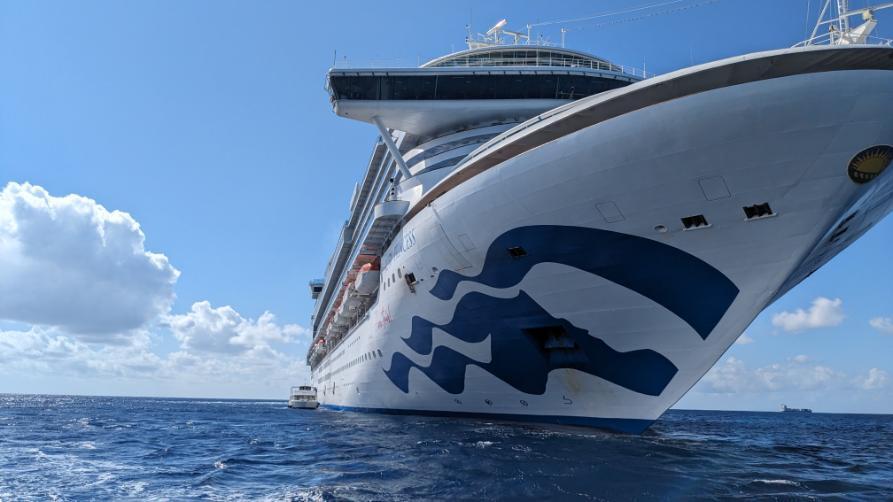
In Jamaica, joy intersected with celebration as we met one of our members who resides there. Despite a three-hour journey each way, his presence became a true testimony to the bridges Sephardic U has been able to build—a living example of the community’s strength and reach.
Jewish gatherings on cruise ships typically draw small crowds, but our expectations shifted when we discovered a designated time and room for Hanukkah lighting on the ship’s itinerary. The room buzzed with energy on the first night as around 50 people gathered—a surprising show of unity likely influenced by the ongoing Hamas-Israel war.
The Hanukkah ceremony was nothing short of beautiful, enhanced by the incredible efforts of the Ruby Princess staff, led by the diligent Italian manager, Luca. The room was transformed with a hanukkia, and a delectable spread of latkes, sufganiyot, salmon, and kosher wine awaited our group. Luca’s promise to secure a larger room soon materialized, and the celebrations continued to grow.
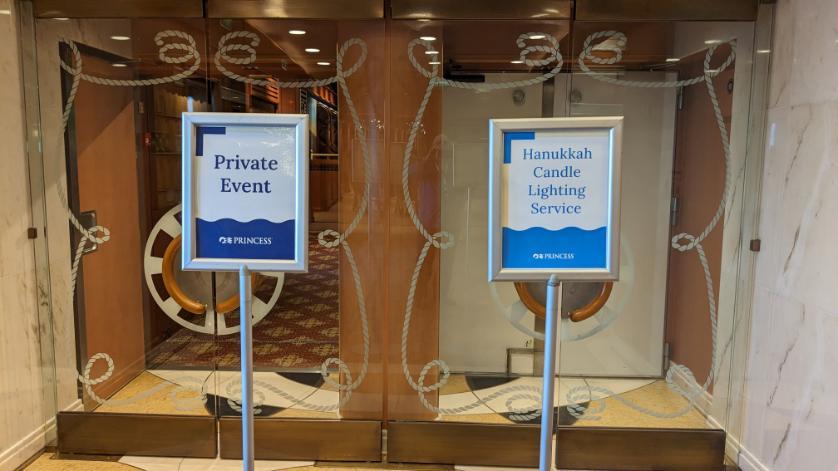
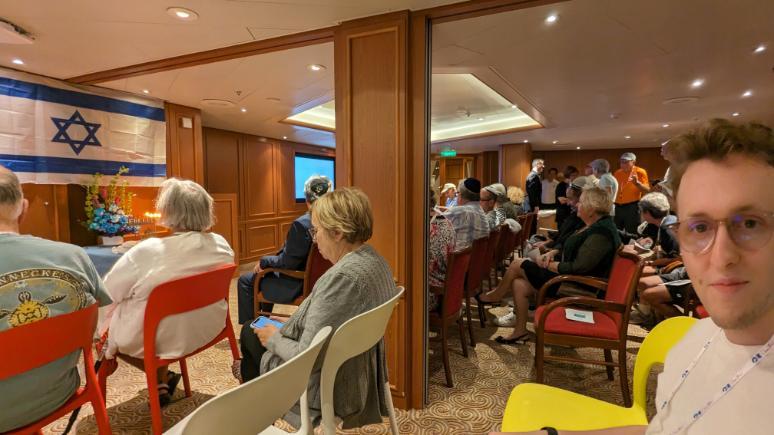
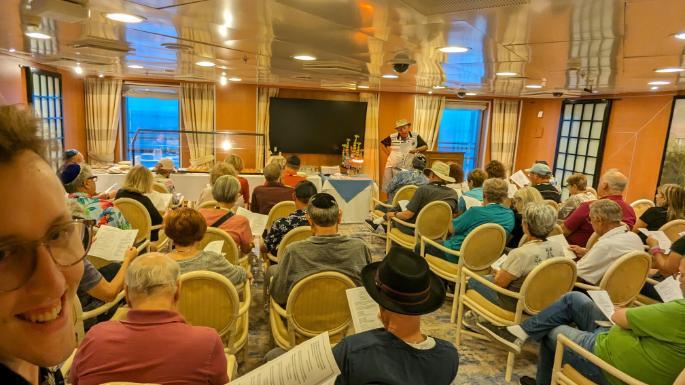
Moved to a spacious private hall, our community swelled to 70-80 people on the second night and nearly 100 attendees each subsequent night until the conclusion of Hanukkah. Luca ensured every detail was perfect, orchestrating a fully catered experience with traditional Hanukkah foods, despite the ship’s restrictions on open flames. An electric Hanukkia, though tricky to operate, became a nightly symbol of our resilience and shared joy.
And as if scripted by fate, in the midst of our joyous Hanukkah celebrations, a surprise wedding unfolded. A Jewish couple from Moldova, previously civilly married, stood before us. Spontaneously, four men held up a makeshift chuppah with a tallit, and we officiated the couple’s Jewish wedding. Luca, always ready to contribute, provided a glass for the groom’s customary stomp, creating a beautiful and unforgettable moment.
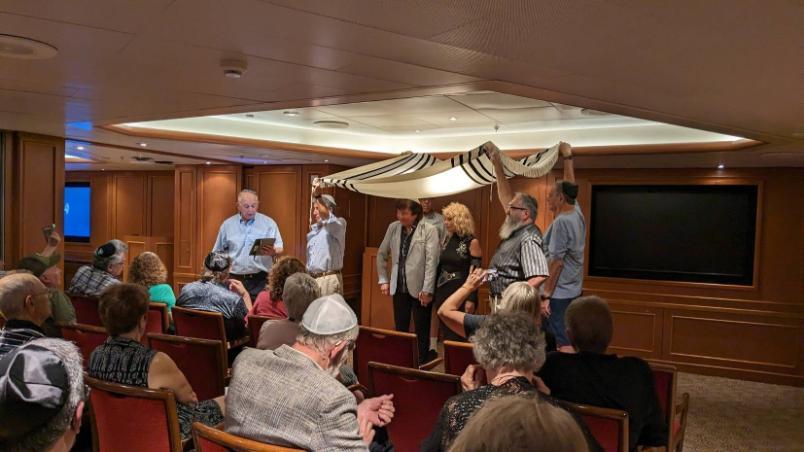
Amidst the celebrations, a poignant encounter unfolded on the first night. A group of Israeli couples seated behind us revealed a connection to the “Bring them Home” tag, echoing Elon Musk’s recent visit to Israel. One gentleman, with a drawn expression, shared that his nephew, Alon Shamriz, was among the hostages taken by Hamas on October 7th.
In solidarity, we pledged nightly prayers for Alon, concluding each evening with Israel’s national anthem, HaTikva. Days later, the cruise took an unexpected turn as Alon, along with two others, escaped but tragically fell victim to friendly fire. The mourning uncle, initially unseen, crossed paths with me before the cruise’s end, and we shared condolences and hugs.
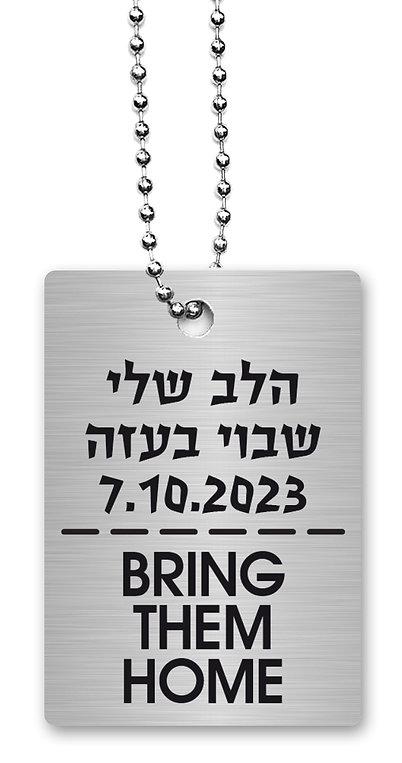
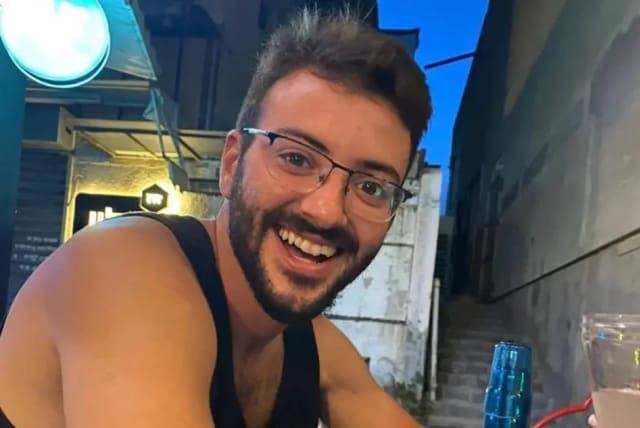
The surprises aboard the Ruby Princess continued. The final day of Hanukkah coincided with Friday, prompting Luca to once again adapt to our growing group. Moving to the Fusion Club, we concluded Hanukkah and welcomed Shabbat with Kabbalat Shabbat, Arvit, and candle lighting. The Ruby Princess team went above and beyond, catering a Shabbat meal with kosher options ranging from brisket to chicken and vegetarian choices, all accompanied by kosher wines. They even provided prayer book pamphlets and booklets for Birkat Hamazon.
As the allotted time for the club neared its end, we gathered in a circle on the dance floor. In a surprise twist, Luca, a non-Jew, was invited to stand in the center. Amidst the circle, we sang the hora, encircling him in a lively dance. Luca stood in awe, a symbol of unity transcending religious boundaries.
Expressing gratitude, our organizer pulled Luca to the center, thanking him for his exceptional care throughout Hanukkah. To Luca’s surprise, we presented him with a package filled with gratuities, a collective expression of appreciation. His eyes welled with tears, and in his loud Italian accent, he exclaimed, “You’re all-a going-a to make-a me-a cry-a!” Applause and cheers erupted as we hugged Luca, expressing our heartfelt thanks.
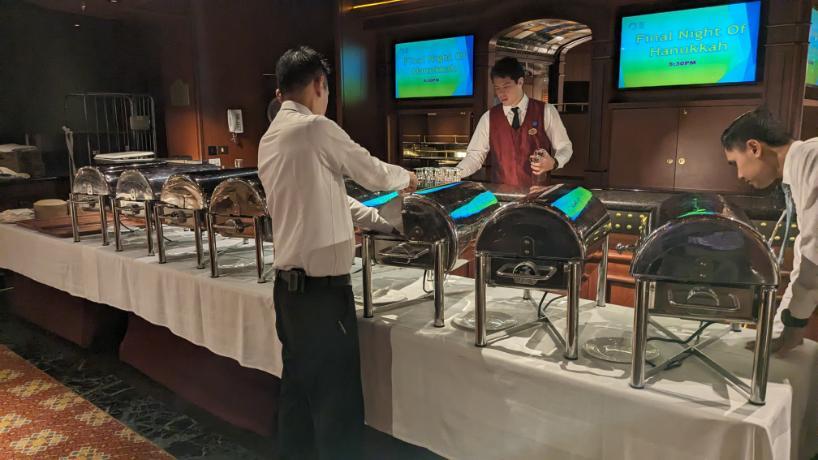
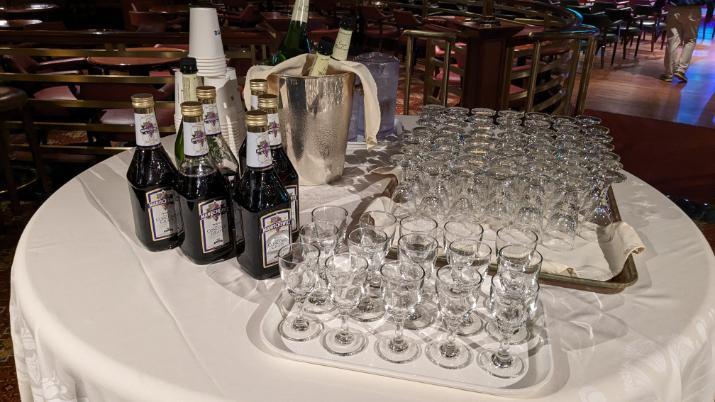
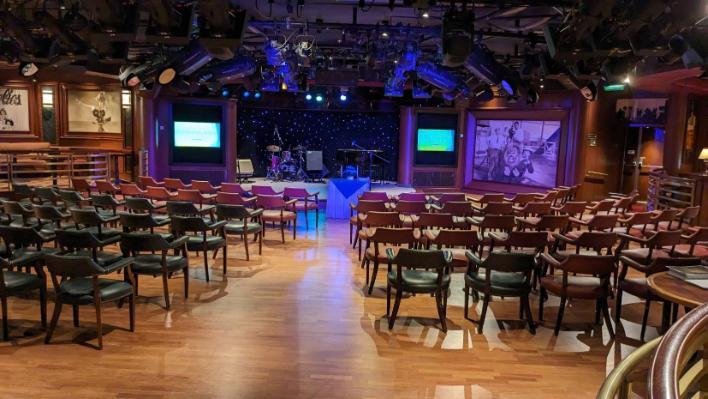
But the surprises didn’t end there. The organizer, with a mischievous smile, revealed another gift—this time for the Ruby Princess. A brand new electric Hanukkia was presented to Luca, a symbol of our collective gratitude for the ship’s accommodating spirit and Luca’s exceptional service. The room burst into applause once more, marking the conclusion of a beautiful holiday celebration, the warm welcome of Shabbat, and the unexpected joy of unity.
In the heart of Hanukkah, we learned a profound lesson—of inspiration and hope that transcends the darkest moments. The flickering light of our menorahs illuminated not only the physical space but also the resilient spirit of a community bound by shared traditions and unwavering strength. In the face of tragedy, we found unity, and in the heart of celebration, we discovered a collective strength that lights our path forward.
This journey also reinforced the importance of embracing our identity proudly. Onboard, I witnessed the unapologetic display of Jewish symbols—a couple wearing kippot, one adorned with tzitzit katan. During a dinner, an elderly man, not Jewish, approached one of the men who wore a kippa. Placing his hand on the Jewish man’s arm, he uttered words that resonated with a timeless blessing, “May God bless you.” This simple yet profound moment echoed a sentiment: Never be ashamed to be Jewish, and never hide your identity. Our presence, our symbols, and our celebrations contribute to a rich tapestry that spans cultures and backgrounds, fostering understanding and unity.
In closing, our heartfelt appreciation extends to the exceptional staff of the Ruby Princess. Luca and the entire team went above and beyond, creating an environment where traditions thrived, unity blossomed, and joy reverberated. Your dedication made this Hanukkah celebration an unforgettable chapter in our lives, and for that, we offer our deepest gratitude. May the spirit of Hanukkah continue to inspire and illuminate the paths of all who journey aboard the Ruby Princess.


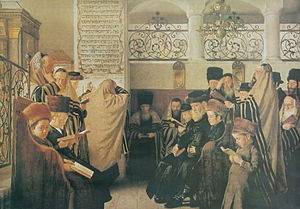





Parashat Behar – Weekday Torah Reading (Moroccan TeAmim)